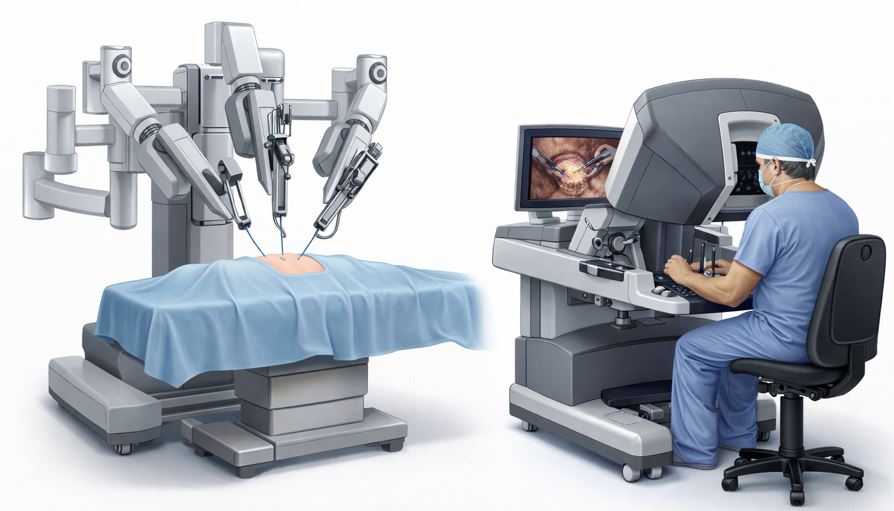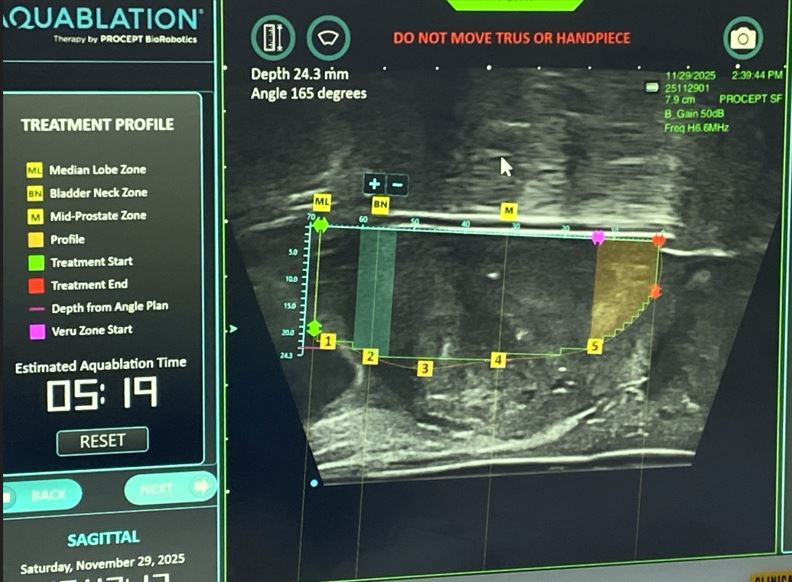Overactive bladder (OAB) is a common condition that causes a sudden and difficult-to-control urge to urinate. Many people feel as though they need to pass urine even when their bladder is not full. OAB affects around 15% of adults worldwide, and the likelihood increases steadily with age. Although not dangerous, it can greatly affect confidence, sleep, daily activities, and overall quality of life.
People with OAB often experience a combination of symptoms:
- Urgency – a sudden and strong need to urinate.
- Frequency – going to the toilet more than eight times in 24 hours.
- Nocturia – waking up at night one or more times to urinate.
- Urge incontinence – leaking urine before reaching the toilet.
OAB is not a disease on its own but a group of symptoms caused by the bladder muscle contracting too soon or too often. New research shows that bladder function is strongly connected to overall heart and lifestyle health — something many people are unaware of.
How Are the Heart and Bladder Connected?
A major 2025 Scientific Reports study examined how cardiovascular health influences bladder function. Surprisingly, it showed that people with healthier hearts have much lower rates of overactive bladder.
The researchers used a health scoring system called Life’s Essential 8 (LE8), developed by the American Heart Association. LE8 measures heart and lifestyle health across eight key areas:
- Healthy diet
- Physical activity
- Not smoking
- Good sleep
- Healthy weight
- Normal blood pressure
- Normal blood sugar
- Healthy cholesterol levels
-
Each area contributes to a total score between 0 and 100. A higher score reflects better overall health.
What Did the 2025 Study on Heart Health and OAB Actually Find?
The research analysed more than 23,000 adults from the NHANES dataset (a highly reliable US national health survey). The results were striking:
- People with high LE8 scores (80–100) were 75% less likely to have OAB compared with those who had low scores (0–49).
- Even a moderate score (50–79) reduced the likelihood of OAB by 48%.
- High blood sugar was the strongest individual factor linked to OAB.
- Other key contributors included high body weight, smoking, increased blood pressure, and poor sleep.
In simple terms:
Better heart and lifestyle health = better bladder control.
This type of large population study cannot prove direct cause and effect, but it does show very strong and consistent associations.
Why Does Cardiovascular Health Influence the Bladder?
The bladder relies on healthy nerves, muscles, and blood supply. Poor cardiovascular health can disrupt these systems in several ways.
1. High blood sugar damages bladder nerves
Raised blood sugar, often linked to type 2 diabetes, can damage the nerves that tell the bladder when to contract or relax. This can lead to:
- Urgency
- Frequency
- Incomplete bladder emptying
Around 50% of people with long-term diabetes experience some form of bladder dysfunction.
2. Excess body weight puts pressure on the bladder
Being overweight increases abdominal pressure, which pushes down on the bladder and pelvic floor. Even a 5–10% weight loss can significantly reduce OAB symptoms.
3. Smoking reduces blood flow to the bladder
Smoking decreases blood supply to the bladder lining, creating irritation. It can also cause coughing episodes that worsen urine leakage.
4. Poor sleep disrupts hormone and nerve signals
Sleep regulates hormones such as antidiuretic hormone (ADH), which helps the body reduce urine production at night. Poor sleep increases nocturia and urgency.
5. High blood pressure affects bladder muscles
Long-term high blood pressure can stiffen the small blood vessels that supply the bladder. This reduces oxygen delivery and can lead to overactivity of the bladder muscle (the detrusor).
These processes collectively demonstrate the profound connection between heart and bladder health.
What Can You Do to Reduce OAB Risk by Improving Heart Health?
Improving your Life’s Essential 8 score supports your heart — and your bladder. Even small, consistent changes can reduce OAB symptoms over time.
Eat a bladder- and heart-friendly diet
- Include more vegetables, fruit, wholegrains, nuts, and lean proteins.
- Reduce sugary drinks and processed foods.
- Limit caffeine and alcohol, which can irritate the bladder.
Increase physical activity
- Aim for 150 minutes per week of moderate exercise, such as walking, cycling, or swimming.
- Physical activity helps weight control, improves sleep, and lowers blood sugar.
Stop smoking
- Smoking increases the risk of bladder irritation and bladder cancer.
- Stopping smoking improves blood flow to the bladder within weeks.
Improve sleep quality
- Most adults need 7–9 hours each night.
- Good sleep helps regulate bladder signals and reduces nocturia.
Reach and maintain a healthy weight
- A modest reduction in weight (5–10%) can reduce pressure on the bladder.
- Weight loss also helps lower blood pressure and blood sugar.
Monitor blood pressure and blood sugar
- Keeping blood pressure and glucose within healthy ranges supports the nerves and muscles that control the bladder.
Who Is More Likely to Develop Overactive Bladder?
The 2025 study revealed several groups with higher OAB risk:
- Women (59% of OAB cases were female).
- Older adults (those over 65 were twice as likely to have OAB).
- Individuals with lower income or education levels were also more likely to have OAB.
- Certain ethnic groups, such as non-Hispanic Black individuals, showed higher rates.
These patterns highlight how both biological and lifestyle factors contribute.
How Reliable Are These Findings?
The results are considered highly reliable because:
- The study used NHANES, one of the most trusted health databases globally.
- Over 23,000 adults were included — a large sample size.
- The statistical methods were robust, adjusting for age, sex, and socioeconomic factors.
- Findings were consistent across different models.
However, as with all observational studies, it can only show association, not causation. More research is needed to confirm whether improving cardiovascular health directly reduces OAB. Still, the strength and consistency of the results are persuasive.
Frequently Asked Questions (FAQs)
Can improving lifestyle habits really reduce OAB symptoms?
Yes. The study indicated that better cardiovascular scores were linked to a 48–75% lower risk of OAB. Weight loss, better sleep, and improved blood sugar levels are particularly effective.
Is OAB just a normal part of ageing?
No. Although more common in older adults, OAB is not an inevitable part of ageing. Many symptoms can improve with lifestyle changes.
Will quitting smoking help my bladder?
Yes. Smoking irritates the bladder lining and affects blood flow. Quitting often leads to noticeable improvement in urgency and frequency.
How long does it take to see improvement?
Some lifestyle changes, such as better sleep and reduced caffeine, can help within a few weeks. Others, such as weight loss or improved blood sugar, may take longer — but the benefits are long-lasting.
Where can I learn more about Life’s Essential 8?
You can read about LE8 on the American Heart Association website
Want to Improve Overactive Bladder Symptoms? Start With Your Heart
This growing area of research shows that the bladder does not work in isolation. It responds to your diet, sleep, weight, stress, blood pressure, and overall cardiovascular health. Improving these factors can support better bladder control, reduce urgency, and help maintain long-term bladder health.
Strengthening your heart may be one of the most effective, natural ways to support your bladder — and improve your quality of life.


